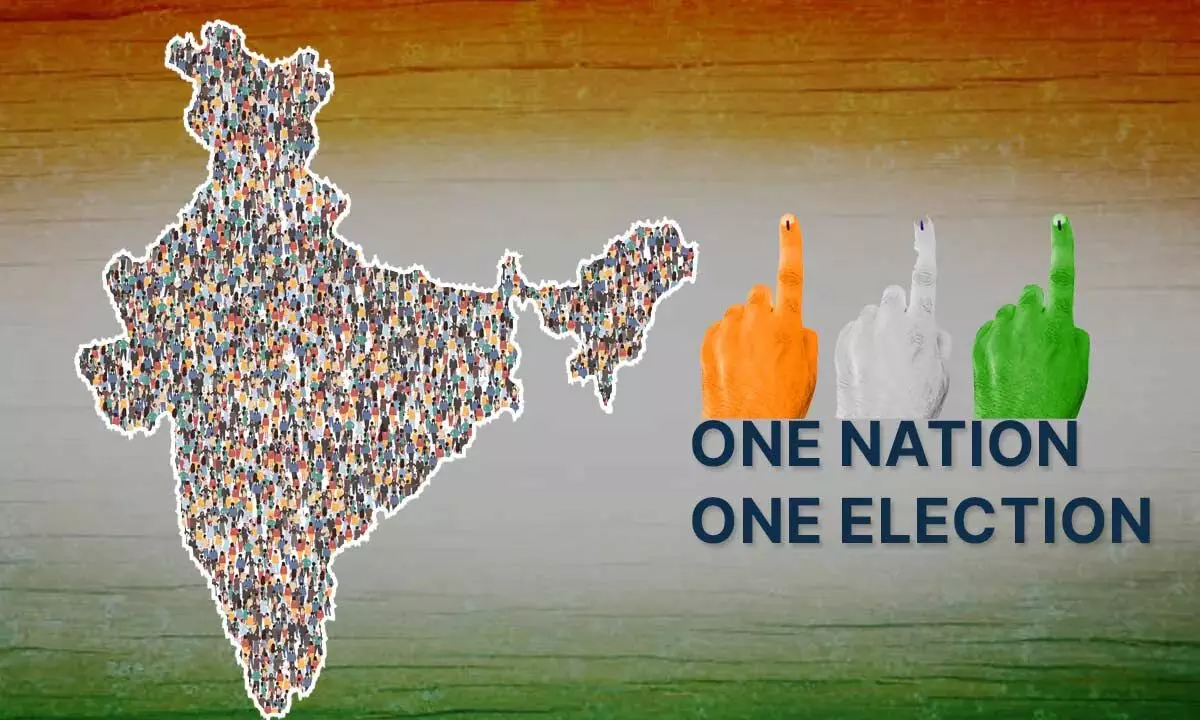Govt pause on ONOE bills may be strategic

It was expected that Parliament would witness a stormy session on Monday when the government introduced the ‘One Nation One Election’ Bill.
It was expected that Parliament would witness a stormy session on Monday when the government introduced the ‘One Nation One Election’ Bill. The NDA partners and the BJP had issued a whip to all their members to be present in the House on Monday. But suddenly, the government decided to postpone the introduction of the bill, raising several questions. However, it says that it is determined to introduce it before the winter session ends.
But why this delay? Will the government refer it to a Joint Parliamentary Committee for wider scrutiny? This possibility is also not being ruled out though the BJP leaders feel that the chances are remote. If the government decides to refer it to JPC, then it will take it up without fail during the budget session which will commence from February 1.
Despite the bill removal from Monday’s schedule, the government can still throw a surprise by introducing it as it retains the option of bringing in legislative proposals through the ‘Supplementary List of Business’ with the Speaker’s permission. This could be a strategic move for the BJP.
The copies of the two bills, aimed at facilitating simultaneous elections to the Lok Sabha and state assemblies, were circulated among the Members of Parliament last week in accordance with procedures. While legal luminaries like Harish Salve feel that there would be no constitutional hurdles and that the process would certainly stand judicial scrutiny, the Congress party feels that this bill would be struck down by the apex court.
The Congress party which is opposed to this bill argues that it is superficially appealing concept, especially to the drawing room and chattering classes. “It appeals to our sense of order, uniformity, discipline, and clockwork timing. But you cannot impose such concepts artificially on underlying fundamentals, like the will of the people, democratic mandate,” felt another legal expert Abhishek Manu Singhvi.
Congress is certain that the amendment will face serious Constitutional challenges, especially on the point that it is infringing upon the concepts of a level playing field and of democracy itself by interfering with the electoral process based upon the will of the people. Hence, it is violative of the basic structure of the Indian Constitution, it contends.
They also argue that more Indian population and geographical space at the state level is governed by regional parties. This artificial synchronisation of the tenures of state Assemblies is a clear threat and infringement to the autonomy and very existence of regional parties, and directly undermines federalism, which was upheld in the 1990s by the Supreme Court in Bommai’s case.
But then in the past, too, such elections were held. Was it not interfering with the electoral process and was it not against the will of the people? Well, the Congress never wants to talk about the past and has no clear vision about the future. When it spoke on the Constitution in Parliament, it avoided references to the Emergency, the various amendments that were brought in by successive Prime Ministers of Congress party which had put the Constitution in ‘Khatra.’










